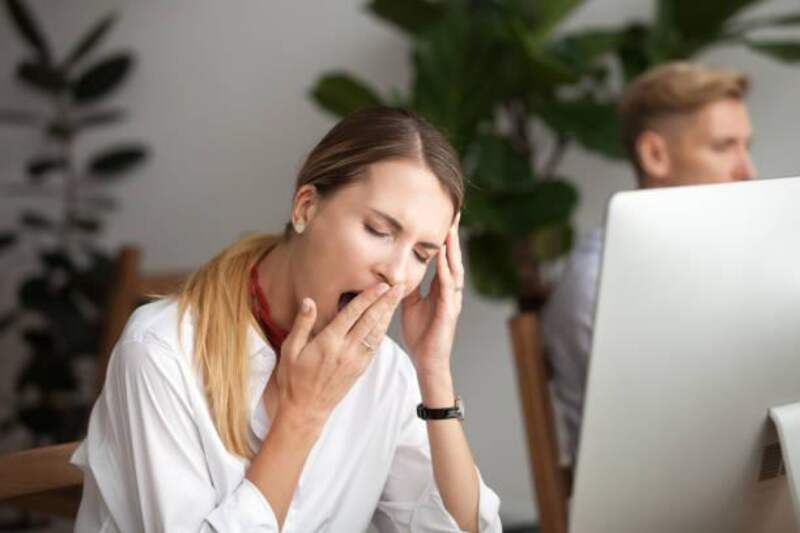Micro-sleeping is commonly described as an episode or episodes of sleep lasting up to 30 seconds. The incidences are short, and when they happen, you may not be aware of them. Some people experience micro-sleeping several times during the day, while for others, it may be an occasional occurrence.
You can find yourself micro-sleeping when struggling to stay awake, and sleep overcomes you. Such is a sign that you suffer from sleep deprivation and need more night rest. Prolonged periods of microsleep are dangerous if you operate hazardous machinery, are driving, or are in other circumstances that require alertness.
Sleep deprivation leads to fatal conditions like obesity, heart attacks, and high blood pressure. If you suspect you microsleep, determine the root cause of the problem to alleviate it. The tell-tale signs that you are a micro-sleeper are as follows:
Obstructive Sleep Disorder
Obstructive sleep disorder is the blockage of the upper airway when sleeping due to obstructed breathing. When you experience the impediment, you naturally wake up, and repeated incidences result in a night of interrupted sleep. People with the disorder rarely sleep for long periods at night to get adequate rest.
You are likely to be sleep deprived and will spend most of your day micro-sleeping if you have the disorder. The oxygen obstruction during night sleep also means oxygen deprivation to the brain, exacerbating the drowsiness during the day.
Obstructive sleep apnea is common but affects people more when they age or are obese. If you are overweight and suffer from the disorder, exercise to shed the weight and avoid or reduce the consumption of alcohol.
Narcolepsy
Narcolepsy is a sleeping disorder that causes extreme daytime drowsiness. If you feel an uncontrollable urge to sleep during an activity, it could be narcolepsy. An imbalance of chemical substances in the brain responsible for wakefulness is a likely cause of sleep disorder. Some causes of unevenness in brain chemicals include hormonal changes, stress, infections, etc.
In addition to the natural causes, the sleeping disorder could also result from extended sleep deprivation. Your sleeping environment may not be conducive to providing you with adequate sleep and rest throughout the night.
Side sleepers specifically suffer because the shoulder collapses into the mattress and misaligns with the neck. If you experience such a predicament when sleeping, get the best mattress for side sleepers to alleviate your night discomfort and sleep better.
Periodic Limb Movement Disorder
Periodic limb movement is when your limbs experience repetitive flexes during sleep. You experience twitching and jerking movements that suddenly wake you up amid slumber. The more frequently you experience these incidents, the more likely you are to be sleep-deprived during the day and succumb to micro-sleeping.
There are several causes of unusual limb movement disorder, including a malfunctioning central nervous system, drug withdrawal, using stimulants, pregnancy, chronic illnesses, etc. In particular cases, the condition is hereditary and passed on from generation to generation.
If you experience the symptoms associated with the sleep disorder, seek medical attention to know the root cause of the condition to manage it. Avoid alcohol and drugs as they could be worsening the ailment.
Circadian Pattern Disorders
Your internal system that dictates the sleep and wake hours is called the circadian clock. The clock naturally sets cycles of about 24 hours, depending on when you sleep and wake up. The circadian pattern disorder occurs when the clock is out of sync with the environment. For example, you feel sleepy during the day but sleepless at night.
The sleep disruption could be due to temporary circumstances like traveling to different time zones, occasionally extending working hours, late sleeping, etc. However, in some cases, there could be other permanence factors like aging or a medical condition.
If you experience sleep pattern disorders from transitionary circumstances, the situation should resolve itself when you assume normalcy. However, if you have eliminated the temporary causes and still experience interrupted sleep, seek medical attention to get a reprieve.
Insomnia
Insomnia refers to frequent night sleeplessness. You either find it challenging to fall or stay asleep. The deprived sleep inhibits your routine daily activities because of decreased alertness, and you are likely to microsleep. Insomnia is often associated with stress and anxiety or a poor lifestyle.
Taking alcohol and drugs, overworking without rest, and exposure to extreme noise are choices that are likely to cause insomnia. If you indulge in such behavior, keep them in check or avoid them to improve your sleep quality and quantity.
Practice breathing exercises before sleeping and practicing calming activities can improve your sleep quality. Activities like listening to soothing music, reading a book, eliminating noise in the bedroom, etc., can make you sleep better.
Avoid Microsleeping and Be Alert
Microsleeping may seem harmless because it is fleeting but frequent incidents can be hazardous. Get to the bottom of the situation if you experience sleeping disorders to know how to arrest the situation. You deserve a restful night to increase your alertness during the day and be at your most productive state.


